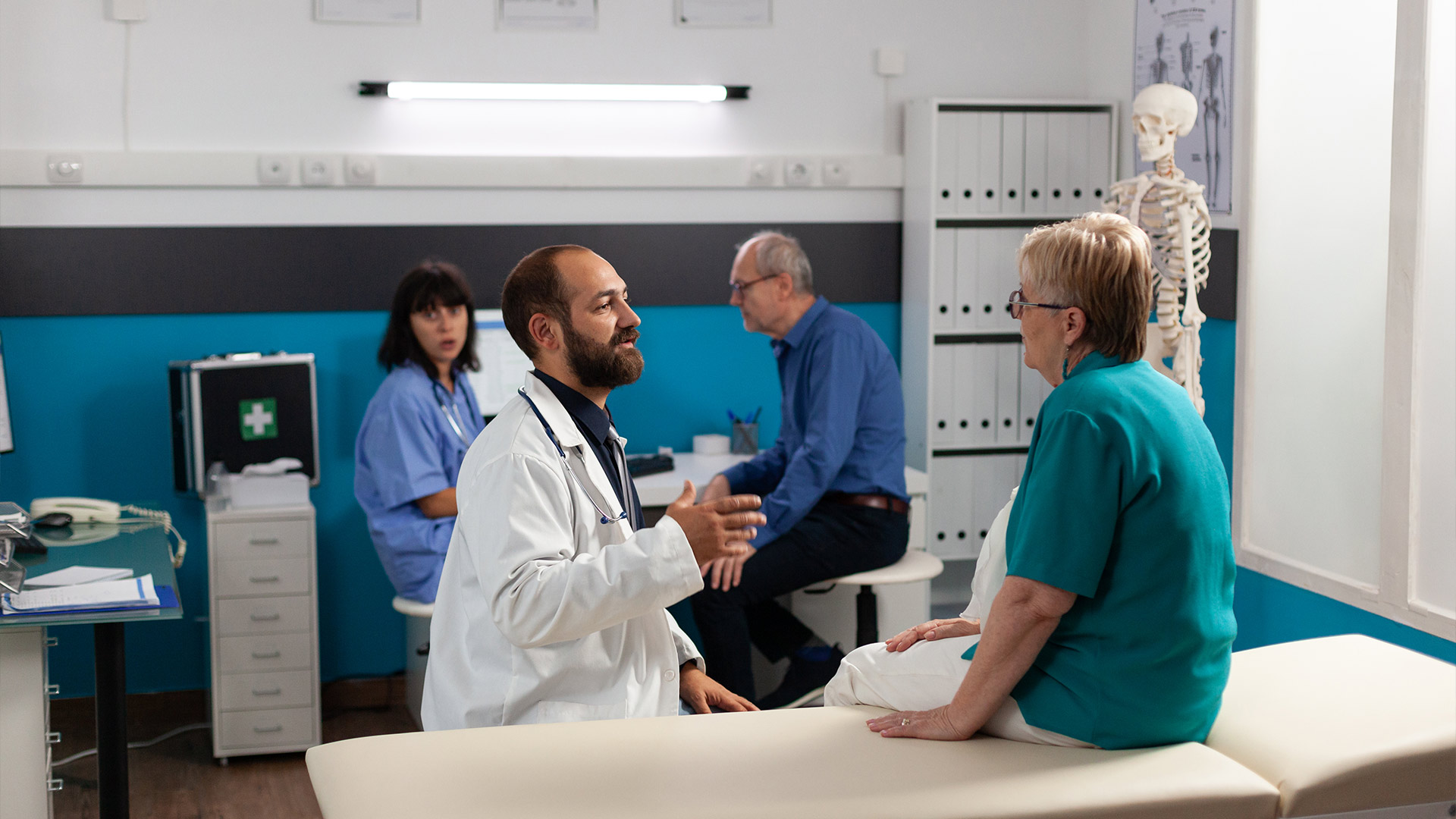Early Screening for Age-Related Diseases: Why Prevention is Better Than Cure
Early screening for age-related diseases is essential for maintaining good health as we age. By identifying potential health risks before they become serious problems, we can take proactive steps to manage our health and prevent complications.

As we age, our bodies naturally undergo changes that can lead to a variety of health issues. From heart disease and diabetes to joint pain and cognitive decline, age-related diseases can significantly impact our quality of life. But here’s the good news – many of these conditions can be prevented or at least managed more effectively with early detection and screening.
Early screening is an essential tool in the fight against age-related diseases, helping identify potential health problems before they become serious. In this article, we’ll explore the importance of early screening, the diseases that benefit from it, and why prevention truly is better than cure.
What Is Early Screening?
Early screening refers to the process of testing for diseases or health conditions before symptoms appear, usually during routine check-ups or as part of preventative healthcare. These screenings help identify individuals who may be at risk for certain diseases or conditions, allowing for earlier intervention, treatment, or lifestyle changes.
By detecting potential health problems early, you can take steps to manage or even prevent them, improving your overall health and increasing your chances of maintaining a high quality of life as you age.
The Importance of Early Screening
1. Catching Diseases Before They Progress
One of the primary benefits of early screening is that it allows you to catch diseases or conditions before they have progressed too far. Many chronic conditions, such as heart disease, diabetes, and certain cancers, develop slowly over time and may not present symptoms until they’ve reached an advanced stage.
When detected early, these conditions can often be managed or treated more effectively, leading to better outcomes and a better quality of life. For example, early detection of cancer can significantly improve survival rates, while managing high blood pressure early on can prevent heart disease and stroke down the road.
2. Preventing Serious Complications
Many age-related diseases can lead to serious complications if left untreated. For example, untreated diabetes can lead to kidney failure, nerve damage, and vision loss. Osteoporosis (a condition where bones become brittle and fragile) can result in fractures, disability, and reduced mobility.
Early screening helps identify people at risk for these complications before they happen, giving individuals the opportunity to make lifestyle changes, start treatments, or take medications that can help reduce their risk of severe outcomes. The sooner you detect potential issues, the easier it is to prevent them from spiraling into major health concerns.
3. Personalized Preventative Care
Early screenings are often tailored to your specific age, gender, and health history. This means that the screenings you receive are designed to detect diseases that are most likely to affect you. For example, women over 40 are typically screened for breast cancer, while men over 50 may undergo prostate cancer screenings.
These personalized screenings can help pinpoint your unique risks and create a preventative care plan that’s tailored to your needs. By focusing on the conditions that are most likely to affect you, early screening can help you take proactive steps to protect your health.
4. Improving Long-Term Health and Longevity
Regular screening and early detection don’t just prevent disease; they also contribute to better overall health and longevity. By identifying risk factors early on, you can make changes that positively impact your health, such as adopting a healthier diet, increasing physical activity, managing stress, or quitting smoking.
With early screening, you have the opportunity to take control of your health and implement preventative measures that help you stay healthy and active for longer. Making small lifestyle changes today can have a significant impact on your future health and aging process.
Key Age-Related Diseases and Their Early Screening Tests
1. Heart Disease
Heart disease is the leading cause of death in many countries, but it’s also one of the most preventable. Early screening for heart disease typically involves checking cholesterol levels, blood pressure, and blood sugar levels. These tests can identify potential risks for heart disease, such as high cholesterol, hypertension, and diabetes, which can all damage the heart over time.
Regular screening can help catch these issues before they cause serious problems, such as heart attacks or strokes. If you're at risk, your doctor may recommend lifestyle changes, medications, or additional tests to help manage your heart health.
Real Example: Tom Hanks, the actor, publicly shared his experience with Type 2 diabetes after years of struggling with high blood sugar. He now advocates for regular check-ups to catch these conditions early and has made significant lifestyle changes to manage his health.
2. Cancer
Cancer is another major concern as we age, but early detection can make a huge difference in treatment outcomes. Regular screening for cancer can include tests like mammograms for breast cancer, colonoscopies for colon cancer, and Pap smears for cervical cancer.
These screenings can help detect cancers at an early, treatable stage, improving survival rates and reducing the need for more aggressive treatments down the line. In some cases, early screening can even prevent cancer by identifying precancerous cells or abnormal growths before they develop into full-blown cancer.
Real Example: Sharon Osbourne, television personality, has been an advocate for early cancer screenings after her experience with colon cancer. She underwent surgery to remove a cancerous tumor after it was detected early, which saved her life.
3. Diabetes
Type 2 diabetes is a common condition that affects millions of people worldwide. Early screening for diabetes typically involves checking blood glucose levels and hemoglobin A1c levels to assess how well your body is managing blood sugar. If caught early, diabetes can often be managed or even reversed with lifestyle changes like diet and exercise.
Untreated diabetes can lead to serious complications, such as kidney failure, heart disease, and vision problems, but early detection and management can prevent these outcomes.
4. Osteoporosis
Osteoporosis is a condition that causes bones to become brittle and fragile, increasing the risk of fractures. It’s particularly common in postmenopausal women, but men can also be affected. Screening for osteoporosis typically involves a bone density test to measure the strength and thickness of bones.
Detecting osteoporosis early allows for interventions such as medication, calcium and vitamin D supplementation, and weight-bearing exercises to help maintain bone strength and prevent fractures.
Prevention Is the Best Medicine
Early screening for age-related diseases is essential for maintaining good health as we age. By identifying potential health risks before they become serious problems, we can take proactive steps to manage our health and prevent complications. Regular check-ups and screenings for heart disease, cancer, diabetes, osteoporosis, and other conditions can improve long-term health, enhance the quality of life, and increase longevity.
Remember, prevention is always better than cure. By taking control of your health today through early screening and preventative care, you’re investing in a healthier, more vibrant future.
So, make it a priority to schedule regular check-ups, get the screenings that are right for your age and health history, and take action to protect your well-being. Your future self will thank you!


